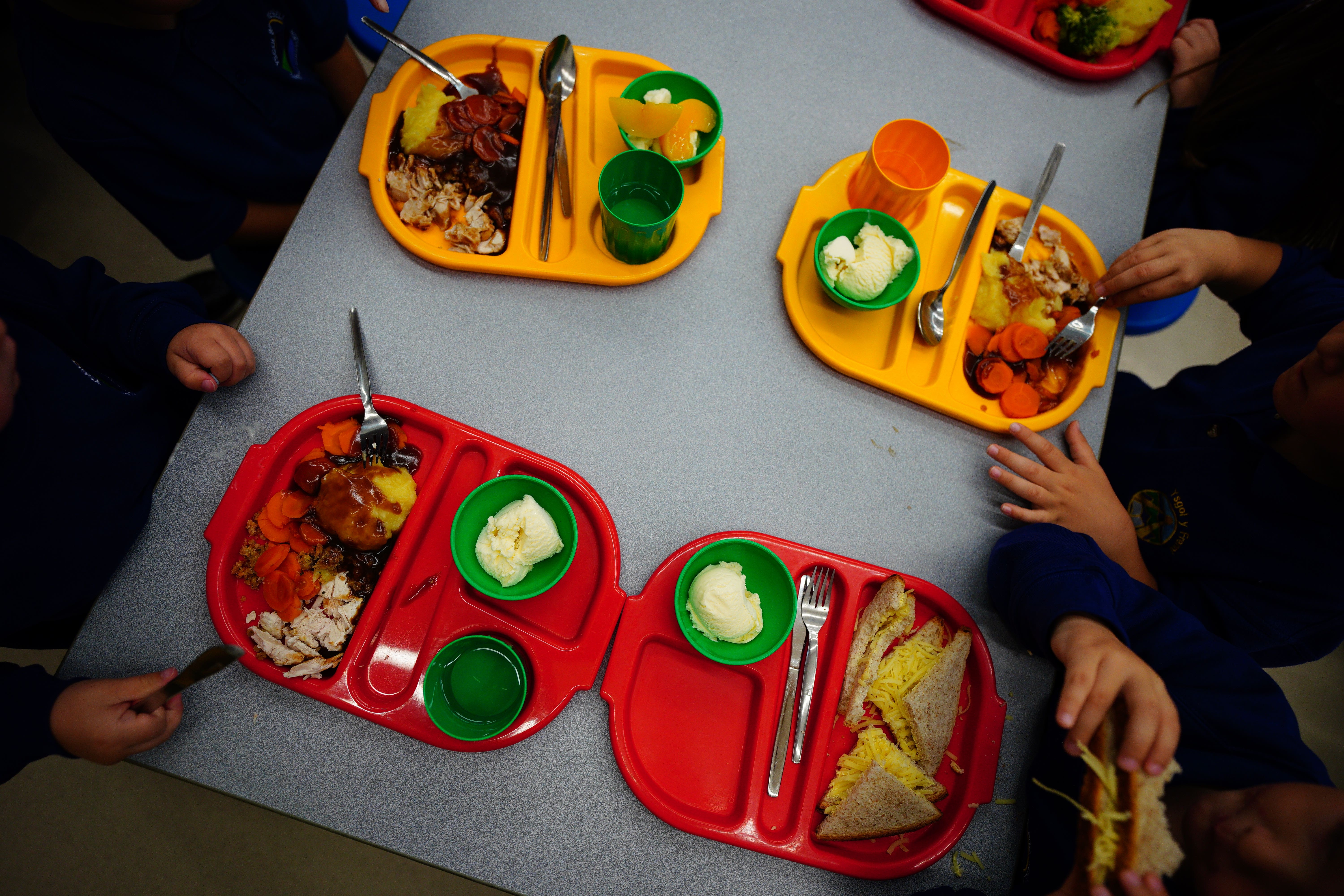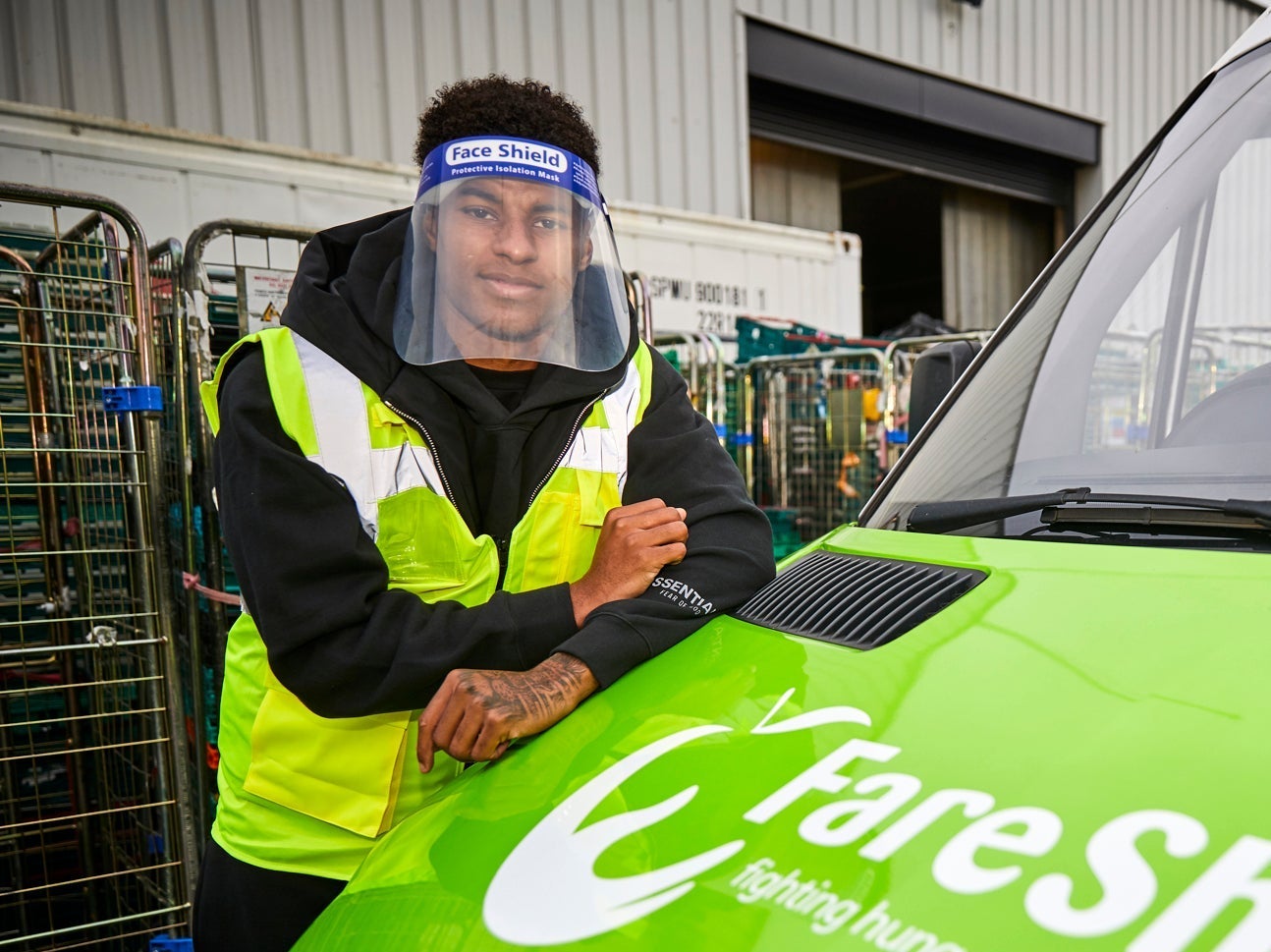Free school holiday meals could be pulled for half a million children if council cuts continue, Reeves warned
Labour’s spending limits risk undoing Marcus Rashford’s covid campaigning work, new research shows

Your support helps us to tell the story
From reproductive rights to climate change to Big Tech, The Independent is on the ground when the story is developing. Whether it's investigating the financials of Elon Musk's pro-Trump PAC or producing our latest documentary, 'The A Word', which shines a light on the American women fighting for reproductive rights, we know how important it is to parse out the facts from the messaging.
At such a critical moment in US history, we need reporters on the ground. Your donation allows us to keep sending journalists to speak to both sides of the story.
The Independent is trusted by Americans across the entire political spectrum. And unlike many other quality news outlets, we choose not to lock Americans out of our reporting and analysis with paywalls. We believe quality journalism should be available to everyone, paid for by those who can afford it.
Your support makes all the difference.Half a million children could face going hungry over the holidays if the government chooses not to retain a crucial local council fund, experts have warned.
A report from charity End Furniture Poverty writes that 22 local authorities say they will not continue providing free school meal holiday vouchers if chancellor Rachel Reeves does not extend the Household Support Fund (HSF) beyond its September end date. A further 20 say they are unsure about how they would continue to fund the measure.
This would leave children in over a quarter of local areas at risk of going hungry over the holidays, report author Daniel Peake says, with around 561,000 children who qualify for the vouchers being unable to access them if the HSF is not continued.
These vouchers gained prominence in 2020 when footballer Marcus Rashford campaigned passionately for their retention during the Covid pandemic. Initially resisted by the Conservative government, then-prime minister Boris Johnson eventually relented, allowing free school meals to be provided to children from low-income families over the holidays.
Although the government-funded free school meal holiday voucher scheme ended in 2021, many local councils have picked up the bill and continued to provide them from their own budgets. The End Furniture Poverty report has now revealed that 44 percent of the total HSF budget in 2023/24 was used to provide holiday food vouchers for families in receipt of free school meals.

Introduced in 2021, the HSF was designed to help vulnerable households through the cost of living crisis. Local authorities are given freedom to decide how best to use their share of the £500 million fund, such as providing cash grants, supermarket vouchers, or energy bill assistance.
The fund has been renewed four times since its introduction, each time for six months, bringing the new end date to September 30 this year. Many experts have now urged new chancellor Rachel Reeves to extend the fund once again to continue providing this essential “lifeline,” perhaps taking her October budget as a chance to do so.
Mr Peake says: “The alternative to providing vouchers is that children will go hungry until the welfare state is able to adequately cover need.
“This will have endless negative repercussions on wider public services. It will reduce education opportunities and the ability of the poorest children to reach their potential.”
A survey from the Local Government Association also shows that 94 percent of councils believe the HSF should continue, with nearly two-thirds saying they would not be able to provide Local Welfare Assistance – money made available to those in severe finanical hardship – if it is not.
The calls come after the new Labour government continues to receive criticism from campaigners for its refusal to bow to pressure to lift the two-child benefit cap, a measure which prevents parents from claiming universal credit or tax credit for more than two children.
The cap has been described by the Child Poverty Action Group (CPAG) as “the biggest driver of rising child poverty,” with the charity saying its removal would lift 300,000 children out of poverty and a further 700,000 out of deep poverty.

Ms Reeves has said she would not commit to the the £3bn cost of scrapping the measure “without being able to say where the money was going to come from,” meaning it is also unlikely to be addressed in her October budget.
Amid the calls, the government launched a taskforce in July to deliver their child poverty strategy. The ministerial team, led by DWP secretary Liz Kendall and education secretary Bridget Phillipson, will “explore how we can use all the available levers we have across government to create an ambitious strategy.”
Launching the initiative, Prime Minister Keir Starmer said: “For too long children have been left behind, and no decisive action has been taken to address the root causes of poverty. This is completely unacceptable - no child should be left hungry, cold or have their future held back.
“That’s why we’re prioritising work on an ambitious child poverty strategy and my ministers will leave no stone unturned to give every child the very best start at life.”
It comes alongside Labour’s Children’s Wellbeing Bill, debuted at the King’s Speech in July, which will introduce free breakfast clubs for all primary school children, strengthens child protection arrangements, and enforces limits on the number of branded items of uniforms schools can require.
For the latest benefits, pensions and cost of living advice, visit The Independent’s handy guide
Join our commenting forum
Join thought-provoking conversations, follow other Independent readers and see their replies
Comments